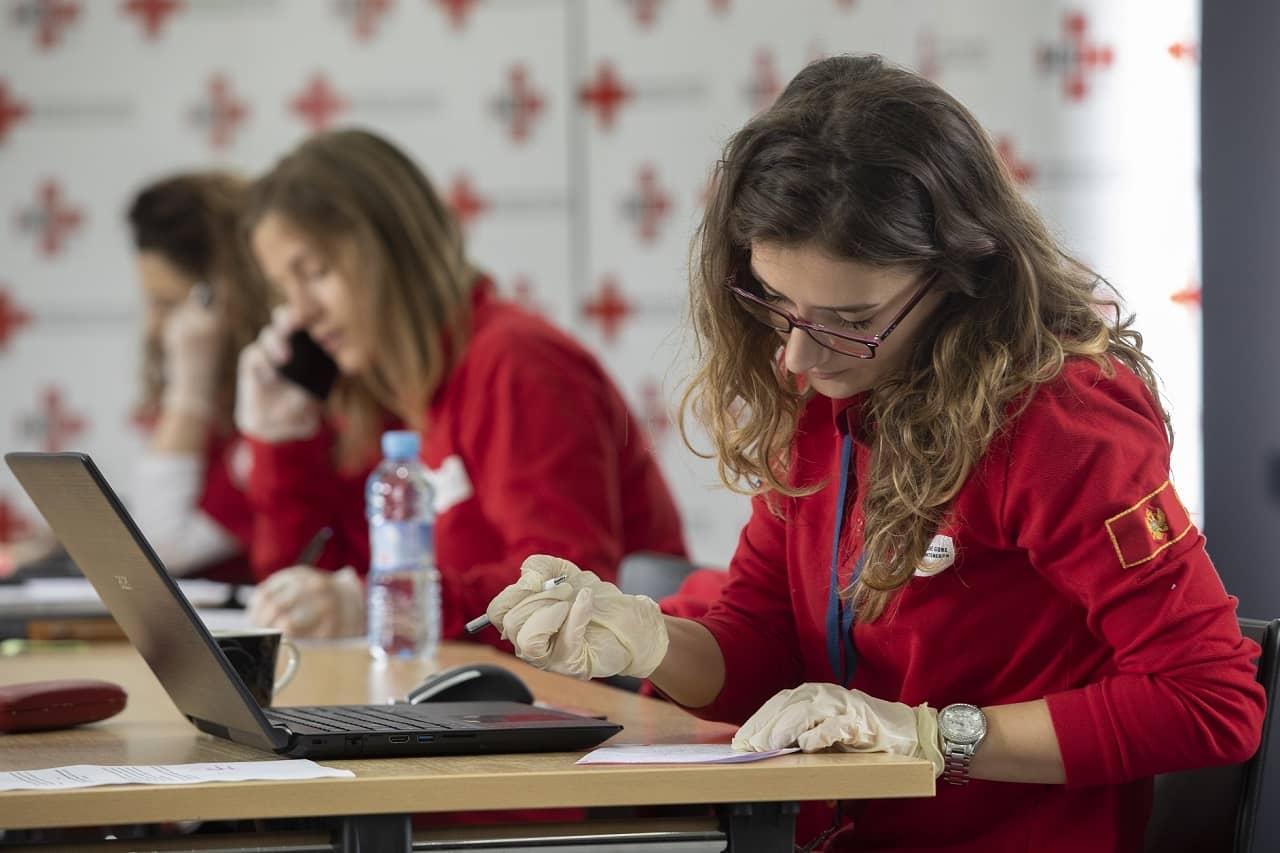
HISTORY OF THE RED CROSS OF MONTENEGRO
Montenegro Red Cross was founded in 1875, as the first Red Cross National Society in the Balkans and 22nd in the world. With the beginning of conflict situation in Herzegovina in 1875, known as Nevesinje rising, Montenegro Red Cross started to fulfill its mission. The large number of refugees had to leave their homes, and they came to Montenegro, which was, at that period, much smaller and poorer.
On the secret meeting with the leaders from Herzegovina, held on Lovcen Mountain, July 26th 1875, Prince Nikola agreed on providing support to the rebels. In August the same year, a Board for providing relief to the vulnerable from Herzegovina was founded. The Board consisted of seven members. Just upon the foundation, the Board invited foreign doctors to come to Montenegro and to organize hospitals in Grahovo, Zupa Niksicka, Drobnjaci, Savnik and Andrijevica.
The first official data on displaced population from the Turkish territory was published in the „Glas Crnogorca“(„The voice of the Montenegrin“), in October 25th 1875. According to these data (two months after the rising began), there were 47 207 refugees in Montenegro. According to the official data, published in the Montenegrin yearbook „Orlic“for 1875, there were 10 818 families in Montenegro, consisted of 62 496 members.
With the ratification of Geneva conventions on wounded in November 17th (29th) 1875, Montenegro became 22nd member of the International Red Cross Movement.
International Committee of the Red Cross from Geneva, sent its delegation-mission to Montenegro on December 1875, and provided advice for the newly founded Red Cross Society.
Just after the signing of Geneva Convention, Montenegro Red Cross Society was founded in Montenegro and Archimandrite Visarion Ljubisa was its first President.
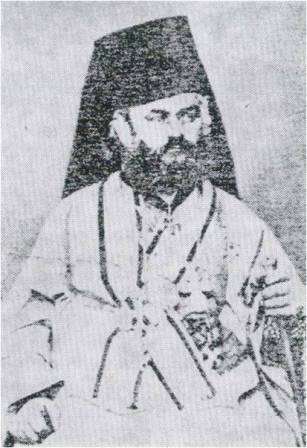
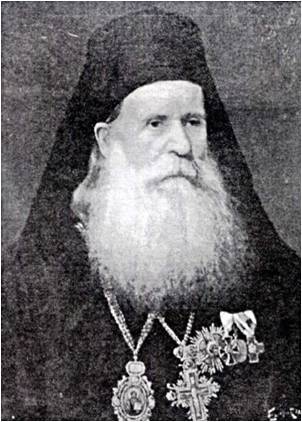
In the mid of 1920, on the meeting held in Cetinje, Montenegro Red Cross Society adopted the decision on joining the Red Cross of Serbia, founded in January 25th 1876.
According to the decision of the Government of Serbs, Croats and Slovenians from July 29th 1921, during the Assembly held in Belgrade, Red Cross of Serbia took over the function of Red Cross Society of the Kingdom of Serbs, Croats and Slovenians.
In 1923, Youngsters of the Red Cross Society of the Kingdom of Serbs, Croats and Slovenians were founded.
In 1925, a modest anniversary on the occasion of 50 years of foundation of Montenegro Red Cross was held in Cetinje.
In the beginning of April 1944, on the free territory of Montenegro, an Initiative Board for recovery of Red Cross for Montenegro and Boka was founded. The founding Assembly of Montenegro Red Cross was held in April 30th 1944, in the village Kuti, in Zupa Niksicka. Dr Pavle Mijanic was elected the first President of Montenegro Red Cross.
An anniversary on the occasion of 100 years of foundation of Yugoslavian Red Cross was held on June 10th 1975. Besides the delegates from Yugoslavia, 80 delegations of Red Cross/Red Crescent/Red lion and sun Societies, the League, International Committee of the Red Cross and Henry Dunant Institute were present for the anniversary. On the same day, The Park of friendship was planted in Cetinje.
In 2002, Red Cross Society of Serbia and Montenegro was founded.
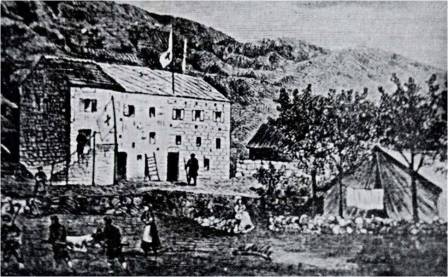
After the recognition of the state independence of Montenegro, General Assembly of International Federation of Red Cross/Red Crescent Societies, during its ordinary meeting in Geneva, on November 20th 2007, formally and legally readmitted Montenegro Red Cross into the world family of Red Cross/Red Crescent. In June 12th 2006, The Assembly of Montenegro Red Cross proclaimed Montenegro Red Cross as independent National Society, and on September 21st the same year, International Committee of the Red Cross renewed the recognition to our organization, as an independent National Society that fulfils every condition for the full membership in the Movement. At the same time, Montenegro Red Cross became temporary member of the International Movement, but the membership was officially confirmed on the mentioned General Assembly from November 20th 2007, by which the process of the recognition of international legal subjectivity of Montenegro Red Cross was finalized, and it became the 186th member of the International Red Cross/Red Crescent Movement.
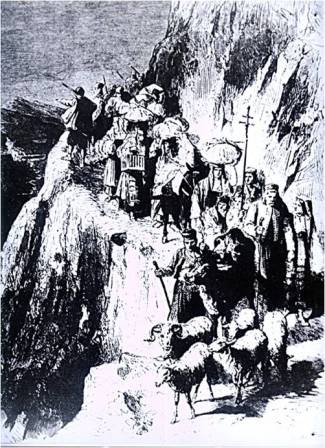
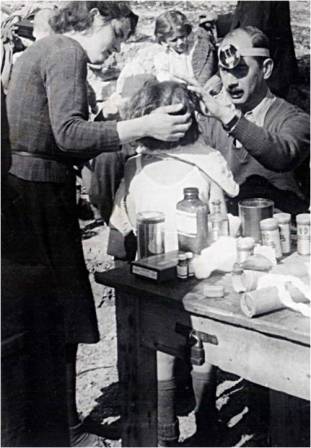
THE HISTORY OF THE INTERNATIONAL RED CROSS/RED CRESCENT MOVEMENT
The story of Red Cross began in June 24th 1859, in the town of Solferino, little place in the north of Italy. There was a battle for independence, after which the Austrians were banished from the north Italy. The battle lasted for 15 hours and resulted in 40 000 wounded, out of which many died.
The medical services were far away from this place, but there was a young salesman from Geneva, Henry Dunant. Dunant was 31 years old and this little place was only a short stop to the place where he was going for the business reasons. When he saw this horrible scene, he wanted to provide relief assistance to all wounded. He was assisted by few doctors who were there, as well as the local population, with scarce aid and equipment. Dunant’s idea was to spontaneously recruit volunteers, i.e. civil population, who were, at first, unwilling to help.
With the famous line „Tutti fratelli” – „We are all brothers”, Henry Dunant succeeded to move and encourage population of Solferino to help. With joint efforts, they took wounded away from the battle field, back to their homes and churches where they were medically assisted.
For three days and night, Henry Dunant, together with the volunteers, took care of wounded, even though they didn’t have the proper equipment for providing help.
After the experience with Solferino, Henry Dunant decided to establish the international society for support, which would be based on the Agreement, and which would be legally binding for the states. Dunant couldn’t stop thinking about the horrors that happened in Solferino, so three years after this event, he wrote a book called „A Memory of Solferino“.In addition to penning a vivid description of his experiences in Solferino he explicitly advocated the formation of national voluntary relief organizations to help nurse wounded soldiers in the case of war. In addition, he called for the development of international treaties to guarantee the protection of neutral medics and field hospitals for soldiers wounded on the battlefield.
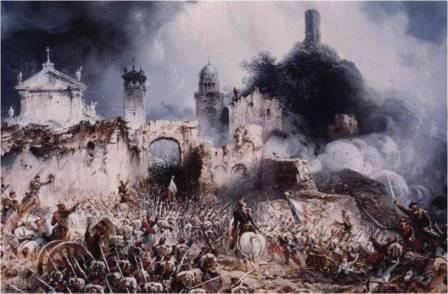
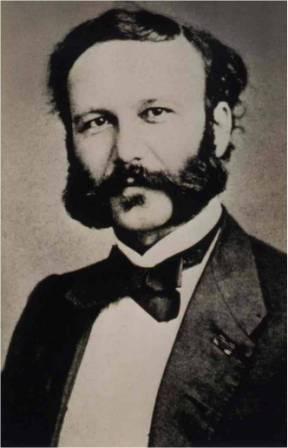
Small number of people supported his idea, and among them were General Guillaume-Henry Dufour, Gustave Moynier, Louise Appia and Theodore Maunoir. Five of them gathered together for the first time on February 17th 1863. and established „International Committee for relief to the wounded“. Known as „Committee of Five“, they started to spread the idea over the world. Dufour opened the Conference on October 26th, which gathered 36 representatives from 16 countries. Ten days after the Conference, they adopted 10 resolutions, and suggested that within every country there should be one National Committee for the relief to the wounded, and the condition for that was the request that medical services, volunteers and wounded are protected, to be declared as „neutral“ and „protected“. Also, they adopted red cross on the white sheet, as the symbol of protection and identification, which is opposite of the Swiss flag, as the sign of appreciation to Henry Dunant. This represented the precursor of the foundation of the International Committee of the Red Cross.
In Geneva, in August 22nd 1864, the first Convention for the protection of wounded on land during war was signed. The protection was in 1868. extended to wounded and shipwrecked military personnel at sea.
General Dufour and Federal counselor Jacob Dubs, on July 17th 1866, founded Swiss Red Cross. Training of volunteers for providing support to sick and wounded started all over the world. Warehouses were stock with bandages, blankets and other necessary equipment. In the following years, numerous Red Cross Societies were founded.
Red Cross was tested very soon, when the French-German war began in 1870.
Red Cross was perceived as the organization which should provide support in peacefultime, provide help to the sick, older persons, disabled or persons in need. The support was organized in the case of natural and other disasters.
Henry Dunant was, not only the founder of this important idea, but also a visionary. He predicted World War I.
Despite everything, he was forgotten. Dunant lived completely alone, until a journalist Georg Baumbereger, who started to explore his life, visited him. Then again, the attention was focused on Henry Dunant, and he received the first Nobel Prize, at the age of 73. All the money he got, he gave to charity.
National Societies joined together in 1919, and established Federation of Red Cross Societies.
International Movement of Red Cross/Red Crescent Societies is consisted of 186 National Societies (Montenegro Red Cross is the 186th member of the Movement, after declaration of state independence), International Committee of the Red Cross, International Federation of Red Cross/Red Crescent Societies, as well as International Conference with signatory states to the Geneva conventions.
Max Huber, President of the International Court of justice, who was also the President of International Committee of the Red Cross, marked the Red Cross organization. As the President of International Committee of the Red Cross, he used great experience and knowledge in international law. He tried to persuade the state that the civil population had to be protected in the case of war.
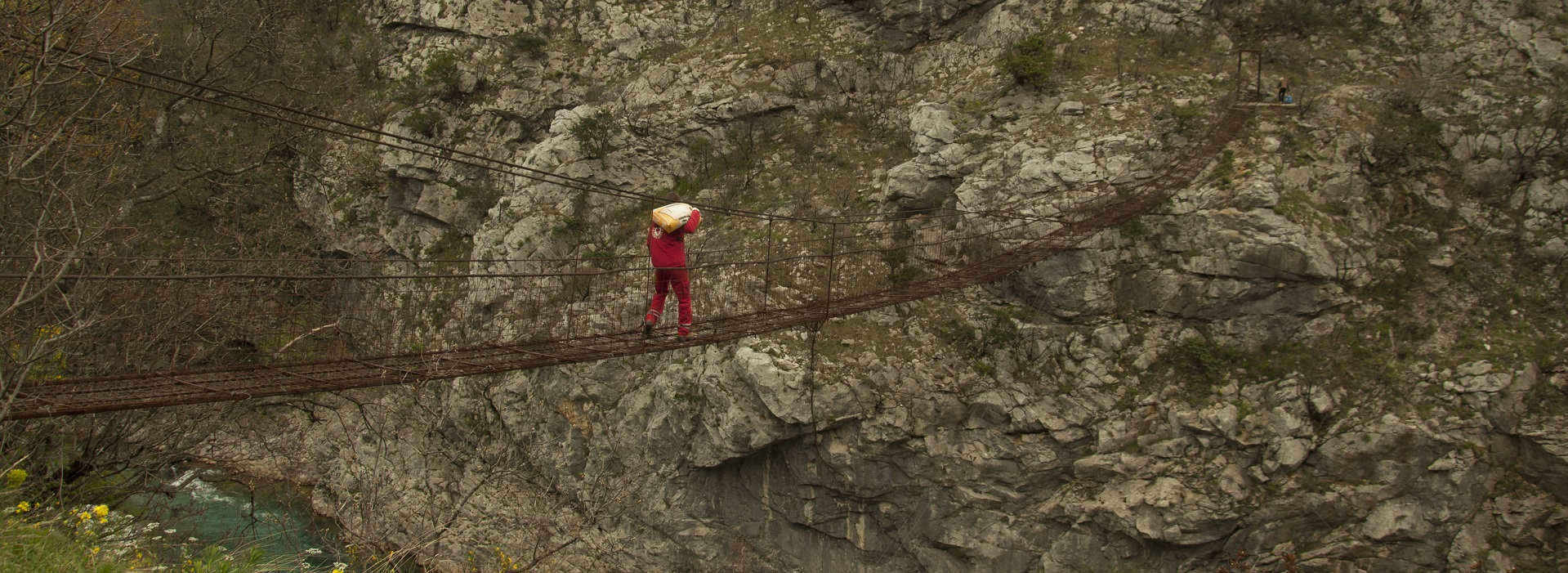
ORGANIZATIONAL STRUCTURE
FUNDAMENTAL PRINCIPLES
Read more about seven fundamental principles of Red Cross.
Contact
RED CROSS MONTENEGRO
6 Jovana Tomaševića
81 000 Podgorica, Montenegro
Phone: +382 20 241 819
Fax: +382 20 241 613
E-mail: ckcg@t-com.me
House of solidarity
Tel: +382 30 373 608
Fax: +382 30 373 124
E-mail: ck-sutomore@t-com.me
Information:
President: Mitar Vučković
Vice president: Snežana Kršikapa
Secretary General: Jelena Dubak
International Cooperation: Nataša Uskoković
Public Relations: Marta Perković
Legal Department: Dragica Savković
Financial Department: Marina Dobrović i Sanja Marković
finansije@ckcg.me, finansijska.sluzba@ckcg.me
Dissemination of Red Cross knowledge and International Humanitarian Law: Tereza Vujošević
First Aid: Igor Jokanović
Voluntary Blood Donation: Snežana Radenović
HIV/AIDS-a Prevention: Tereza Vujošević
Elderly Care: Ivana Smolović i Igor Jokanović
ivana.smolovic@ckcg.me , igor.jokanovic@ckcg.me
Psychosocial and Mental Health Support: Rahima Adrović, Aleksandra Vujović
rahima.adrovic@ckcg.me, aleksandra.vujovic@ckcg.me
Support to Roma and Egyptians: Snežana Radenović
Migrants Support: Tanja Đurović i Veselin Pajović
tanja.djurovic@ckcg.me i veselin.pajovic@ckcg.me
Antitrafficking: Tereza Vujošević
Disaster preparedness and response: Goran Petrušić
Water rescue: Ivan Terzić
Tracing service and restoring family links: Veselin Pajović, Milena Šćekić
Youth and youngsters: Veselin Pajović
House of Solidarity in Sutomore
Warehouse Cijevna
